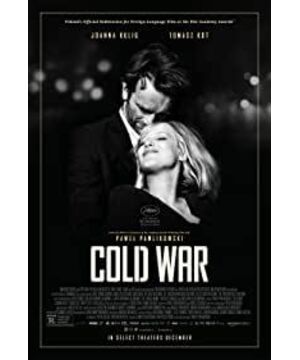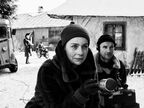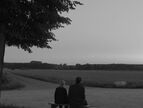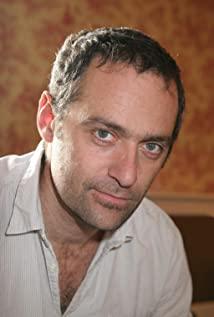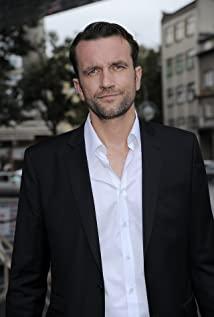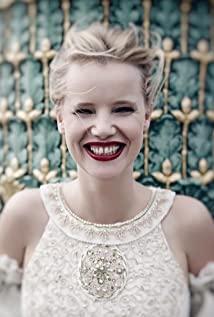Exile is our last faith in love~
As a masterpiece of the year that won the honor of best director at the Cannes Film Festival, "Cold War" has attracted much attention since its release.
"Cold War" is not a huge production, it only has a length of one and a half hours. The two protagonists went from the Eastern camp to the Western society, and then returned to the Eastern camp from the Western society. It’s even more than half of the film.
And my focus is precisely on this period of life in Paris. Both the dark clouds of the Cold War and the entanglements of love are alternately staged in Paris.
Recently, I happened to rewatch Kieslowski’s "Two Flowers", which is also a unique literary film. The heroine Veronica has two avatars in the world. On the one hand, she is a talented singer. Singing to God in Polish, on the other hand, there is a French girl living on the other side of the mainland, speaking love words to the person she likes in French. From beginning to end, the two language families switched back and forth freely, without any sense of contradiction. For a moment, I couldn't tell which one was French and which one was Polish.
In "Cold War", I once again saw the free conversion of the two languages. Because of the times, the two lovers were sometimes in Poland and sometimes in Paris, and apart from their mother tongue, they both spoke fluent French. Could it be that they are born to speak French?
I checked it and found out that Poles have long loved French. The French empire was once famous and its influence spread across the entire European continent. French has always been regarded as a noble and noble language family. In history, Poland has always been a country that admires France, and the Polish people have always had the best impression of the French. Even subconsciously want to become French.
Perhaps this is the reason. Since then, there has been such a unique phenomenon in the world of cinema: French characters often appear in Polish films, and almost every Polish character is somewhat implicated in France. It is natural to speak fluent French. NS.
From this perspective, it is not difficult to understand why films such as "Cold War" and "Two Lives" are filled with so many French passages. After all, as directors Pavlikovsky and Kieslov Skies are all Polish, and they have a soft spot for French culture. From another perspective, Paris, the capital of art, has always been a mecca for artists. Artistic giants like Gauguin, George Orwell, and Hemingway have all wandered around Paris. Pavlikowski arranged the heroes and heroines who were originally artists in Paris, and put the main part of "Cold War" in the capital of art, which was not only reasonable, but also romantic.
With regard to the national character of Poles, cultural drift and the fierce collision of multilingualism have always been unavoidable historical issues.
Looking at Polish modern history, you will find that this is a country where there is identity anxiety. It was first occupied by Germany during World War II and then divided by the Soviet Union, becoming a member of the socialist camp. When Eastern Europe disintegrated, Poland established a democratic republic.
Under the changing times, the system changes and the embarrassing encounters of individual wandering have naturally become the focus of interest of Polish artists. Looking back at the screen classics in Poland, most of them did not evade or beautify these historical issues. Artists have explored various forms of film art, specifically exploring the political identity of the entire nation and the individual. So there is such a scene in "Cold War", the male protagonist wants to return to Poland from France, but is scolded by the French visa officer, "You are a traitor, fleeing Poland, and deceived us!" In fact, the male protagonist has a strong presence. Anxiety about his identity, he has been removed from Poland because of his defect, but his identity is not officially recognized by France, and he has become a marginal person without a political identity.
Language is the exterior of a nation’s character, and everyone uses their native language to represent their nation and country. In people's impression, French is beautiful and unrestrained, French people are romantic and love freedom, while Polish is calm and rational, and Poles are restrained and speculative.
"Cold War" is unique in language. There is no need to specifically show the Eiffel Tower or the Warsaw Mermaid statue in the movie. As long as the protagonist opens his mouth and starts talking, the audience will understand which country it is in.
Moreover, the role of language in the transformation of the protagonist’s life situation cannot be ignored. When this couple of art lovers sang and danced freely and enjoyed the joy of climbing the peak of art, they all spoke French. When they were restricted and monitored, performing collectively under various political symbols, and later when the male protagonist was in jail, all appeared in Polish. Two languages, two political systems.
The Cold War is definitely not just the PK of the two major discourse systems. Under the overwhelming state apparatus, the individual happiness that has been neglected and sacrificed is everywhere, and it naturally includes precious love. So the "Cold War" has subtitles like "For My Parents" at the end of the film. Director Pavlikowski’s parents are both Polish intellectuals, belonging to a generation that has been forgotten, and their sacrificed happiness will be recalled by his son through movies many years later. Since Pavlikowski left Poland at the age of 14, he has been wandering around Europe. The situation of the male protagonist in the film is also a projection of himself to a certain extent.
Similar to Pavlikowski’s famous work "Nun Ida", the tone of the whole film of "Cold War" is calm and alienated, with cool black and white tones throughout, and those nostalgic shots that look like old photos flash from time to time. Art and love, individual and family and country, wandering and the times...all are presented in these sophisticated shots.
What impressed me the most in the whole movie was the dance scene in the middle. The heroine and the heroine meet again in Paris, and both of them already have a significant other at this time. Between light and shadow, they walked slowly on the dance floor, twisting naturally with the lazy music, swaying each dance step briskly, their faces flying and intoxicating, as if all damage is no longer important, and the heaviness thrown by all times is not Re-existed. This scene is the poster for "Cold War" and the climax of the film.
I was moved because the brisk dance was incredible. Telling stories about political persecution or individual misfortunes is always heavy, full of blood and tears, except for the brisk dance steps and full smiles. This is probably the most moving part of "Cold War", too unique and lyrical, just like the flower of freedom blooming in the dark. Of course, this shouldn't exist, but it has been brought into play by talented artists, and it has become a classic scene that hits people's hearts directly.
Unlike the love stories that tell extraordinary times, the love in "Cold War" conforms to all the formulas of ordinary love. If the protagonists are not Polish refugees in exile in France during the Cold War, the love between them is still established today-from Passionate first love leads to a dull relationship, and then begins to be bored and disgusted, creates distance, and then rekindles the old love until death. It can be seen that the main creator did not intend to exaggerate the impact of the Cold War on individuals.
At the end of the film, the lovers finally came to a tragic ending. But this cannot be entirely attributed to the Cold War era or the high-pressure political situation, because they were already reunited at that time, and the two of them could choose to escape and continue to live together. However, they did not take this path. They chose to be together forever, and both took poison and died in love poetically. This is their last wish, and you can't accuse it. Only you know the mindset of the person involved.
In fact, the turbulent Cold War era is just the appearance. The truth is that they have lost their confidence and continue to live together. Constantly flying around, and homeless for many years, I guess they were already tired at that time. They are tired of their lives in exile, tired of the unpredictable true and false of secular feelings, and the continuous turbulent world of power is even more disturbing... It seems that happiness can only be achieved in another world, and only death can not take them. Separate.
The eyes of Jesus that appear repeatedly in the film are an obvious hint. Those melancholic eyes symbolized the perspective of heaven, staring coldly at the joys and sorrows of the world, but indifferent. At the last moment of martyrdom, the lovers went to the bombed church again, and filled the altar of Jesus with small white pills, which can be regarded as a response to heaven. It can be seen that they are always loyal to their hearts, pure love between each other, and spiritual belief in gods, rather than family, country, society or a certain ideology.
In this way, the lover's martyrdom has a purely tragic meaning. It is an active abandonment after seeing through, rather than a helpless passive choice. With the idea of "Go over there, the scenery there is better", they went to the end without hesitation. This kind of madness belongs only to idealists, those who can stand firm for some kind of pure faith. Their belief is love.
In my opinion, since they are determined to be together after death, then this ending is not necessarily sad, on the contrary, there is happiness that ordinary people can't understand.
(Personal public number: Baltic)
View more about Cold War reviews


